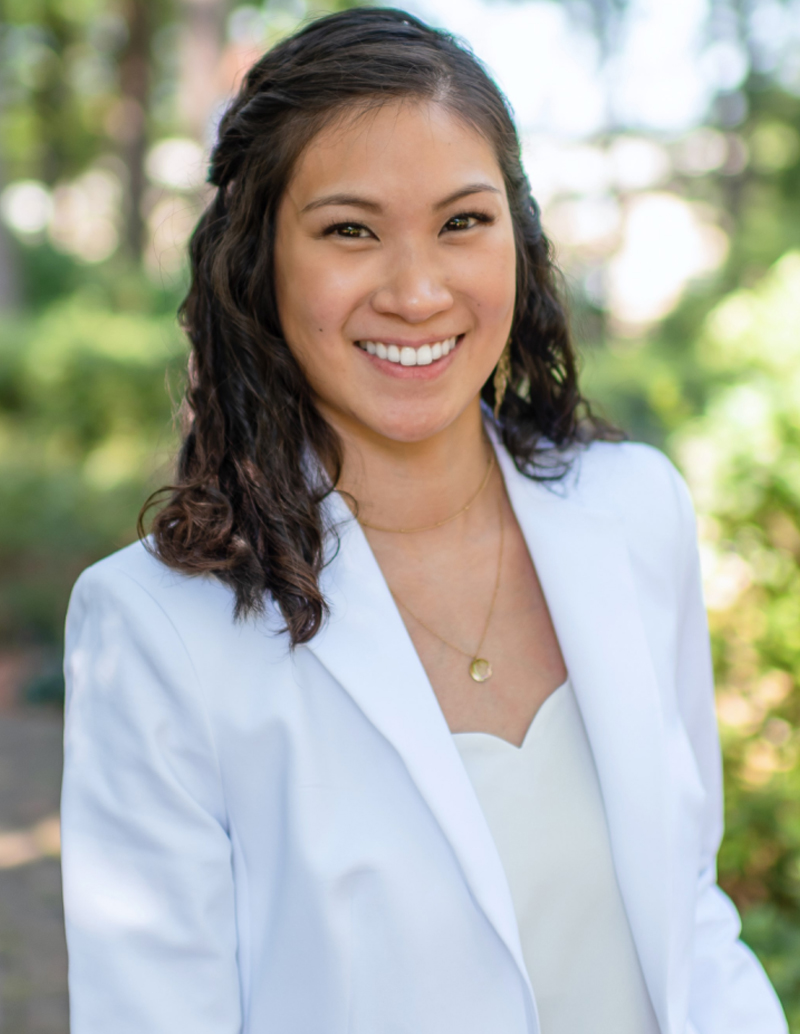Transforming the Nation's Health
Tiffany Lin, DNP Student | Fall 2023 - Published Op-Ed
Asian Americans Are Facing a Mental Health Crisis Fueled by Racism and Cultural Taboos
Tiffany Lin, DNP Student
Asian Americans Are Facing a Mental Health Crisis Fueled by Racism and Cultural Taboos - Published November 16, 2023
Course 962
Transforming the Nation's Health
Once a place of convenience and comfort, the grocery store became just another place where I felt exposed and vulnerable. At the peak of COVID-19, every cough, noise and movement I made as an Asian American drew unwarranted attention. Derogatory labels like “Kung flu” or “China virus” circulated as people constantly speculated whether I was a carrier of the deadly virus. This heightened vigilance was not a choice, but a necessity.
In 2020, I was a nurse at a big hospital in Orlando, working tirelessly alongside my colleagues during the height of the pandemic to care for the sick. We put our own health at risk, separated from our families, and faced unprecedented challenges with determination and hope. Yet, beneath the façade of resilience, I harbored a hidden fear not shared by all healthcare providers. Being of Asian descent, I feared for my safety. COVID-19 had triggered a disturbing surge in xenophobia and hate crimes, with innocent people being scapegoated for a global crisis they had no hand in creating.
Hate crimes against the Asian population in 16 US cities increased by 145% in 2020 compared to 2019 and further increased by 339% from 2020 to 2021. As a result, many Asian Americans like me found our daily lives infused with a newfound sense of anxiety and fear. The simple act of leaving our homes became an exercise in hypervigilance.
The world has now emerged from the darkest days of the COVID-19 pandemic with a palpable sense of relief. However, for Asian Americans, the impact of the pandemic is far from being a closed chapter. The emotional exhaustion of being on high alert, the weight of systemic racism, and the fear for our own safety and that of our loved ones, took a toll on the mental health of the Asian American community.
Before the pandemic, Asian Americans had a lower incidence of mental disorders when compared to other racial-ethnic groups. From 2019 to 2020, however, there was a sevenfold increase in cases of depression and anxiety within this community. Addressing this crisis requires a multifaceted approach, which is exactly what the Stop Mental Health Stigma in Our Communities Act would do. The bill was introduced earlier this year in the House by Reps. Judy Chu (D-Calif.) and Grace Napolitano (D-Calif.) and in the Senate by Sen. Mazie Hirono (D-Hawaii).
There is a deeply ingrained cultural taboo in the Asian American and Pacific Islander (AAPI) community surrounding mental health in Asian societies. AAPIs seek help at the lowest rate of any racial-ethnic groups. There’s a shared fear across Asian cultures that seeking mental health support would lead to loss of honor or bring shame to one’s family and community. According to the Substance Abuse and Mental Health Services Administration, only 25% of AAPI adults sought mental health care in 2021. The Stop Mental Health Stigma in Our Communities Act would provide outreach and education to the AAPI community to reduce stigma.
The act would also initiate research on AAPI youths. From 2018 to 2020, Asian Americans stood as the only racial group among 10 to 24-year-olds in which suicide was the leading cause of death. This initiative would enhance understanding of the unique problems faced by the AAPI community.
Critics may contend that addressing the mental health of the AAPI community is no different from addressing mental health in other communities. However, it’s essential to recognize that the interplay of deeply ingrained cultural taboos, profound impacts of racism, the COVID-19 pandemic and the surge in xenophobia, shapes a mental health landscape that is uniquely intricate.
As we emerge from the shadows of the pandemic, let us work toward a brighter future for the AAPI community. The legislation — introduced by Chu, the only psychologist in Congress — could reshape the mental health landscape for the AAPI community. Mental health challenges that were once stigmatized and neglected will be met with understanding and compassionate care. Untreated mental health disorders would decrease, as more individuals would no longer fear seeking help or bringing shame to their families and communities. Our legislators must support this important legislation by the end of this congressional term. We can use our voices to encourage them to do so, as well as take part in community conversations and initiatives that promote open discussion about mental health. If we stand together to uplift the AAPI community, we can pave the way for a more compassionate and inclusive society where mental health is prioritized and embraced by all.
Tiffany Lin is a former Intensive Care Unit nurse and a current doctoral student in the Duke University Nurse Anesthesia program.
